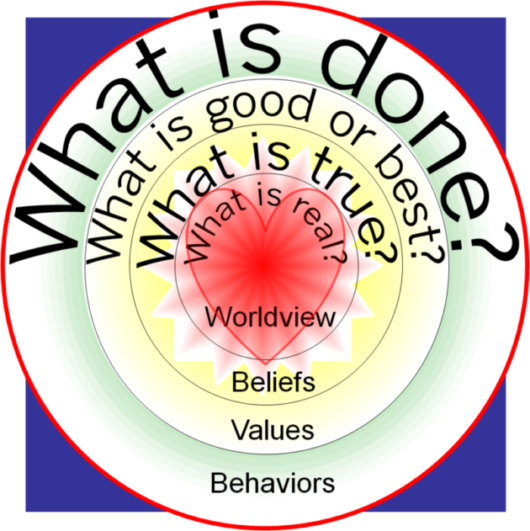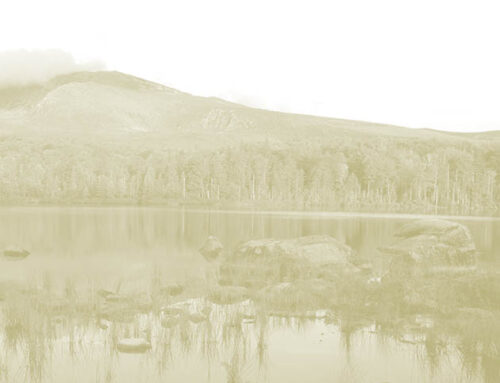I thought I had a Christian worldview. As a freshman at the University of Maryland, I knew many Bible stories, I attended church every Sunday, I tried to follow the teachings found in the Bible, and I even made it a point to have regular quiet times. Then I met a campus minister who took the time to disciple me and show me that my worldview was not actually very Christian.
Our worldview impacts everything about us. One way to define worldview is that it is the way an individual sees and interprets how the world works. Anthropologist Lloyd Kwast developed a helpful model in understanding worldviews and cultures. In the Kwast model, he demonstrates culture as an ever-deepening interface of behaviors, values, beliefs, and worldview: what is done (behaviors) is based upon what is good or best (values), which is based on what is true (beliefs), which is ultimately dependent upon what is real (worldview).1 So, while my behaviors, values, and even beliefs seemed Christian, my worldview was not.
For example, having been educated in the public school system and then at a public university, I wasn’t sure if I really believed the biblical account of creation. Also, my experiences led me to believe that I had to earn my forgiveness. The notion that Jesus forgave all my sins and removed them as far from me as the east is from the west (Psalm 103:12) by grace through faith was too good to be true. And this worldview affected my beliefs, my values, and ultimately my actions.
This is why the work that Rev. Tanner and RUF are doing is so vital! They are seeking to give students a Christian world-view. After being discipled, I also began to work with college students. I found that many college Christians knew the “right” behaviors and answers, but when it came down to the way they saw and interpreted the world, it was decidedly non-Christian.
Being a Christian does not mean merely exhibiting the expected or requisite behaviors but being transformed at the core of our being by Christ and His finished work.
We ask you to pray for Rev. Tanner and RUF, and other campus ministers and ministries. They are shining the light of Christ in dark places. May students see their good deeds, glorify our Father in heaven (Matthew 5:16), and come to a saving knowledge of Jesus Christ.
by Pastor Su Kim
1The Kwast Model of Culture used by permission of the Center for Intercultural Training (cit-online.org). Diagram taken from “Understanding Culture” by Lloyd Kwast, published in the second edition of Perspectives on the World Christian Movement, © by William Carey Library.






